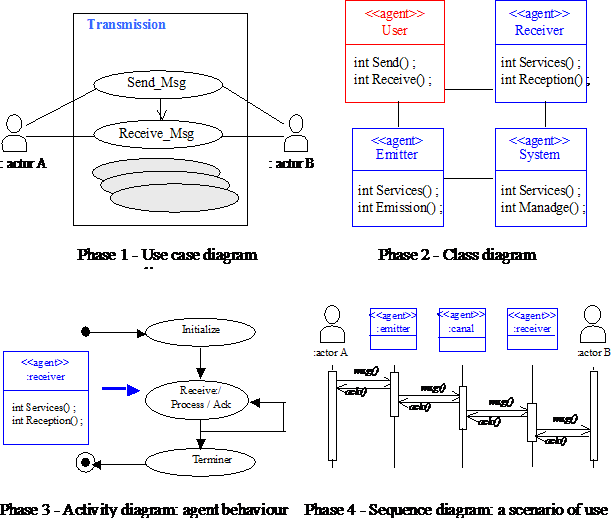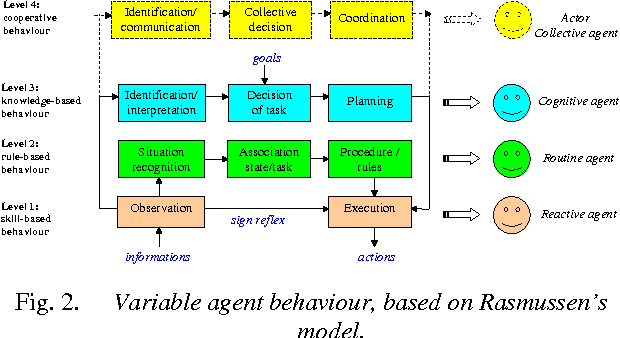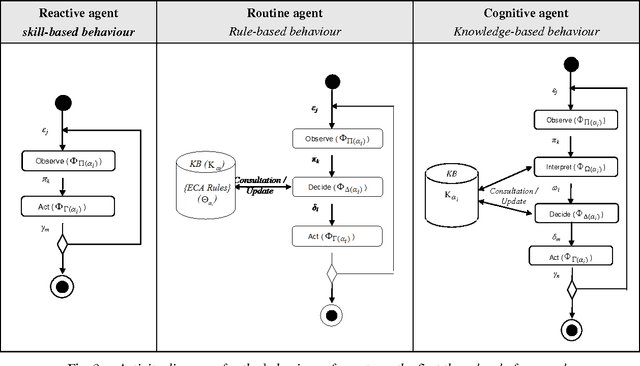Modelling and simulation of complex systems: an approach based on multi-level agents
Paper and Code
Jan 18, 2012



A complex system is made up of many components with many interactions. So the design of systems such as simulation systems, cooperative systems or assistance systems includes a very accurate modelling of interactional and communicational levels. The agent-based approach provides an adapted abstraction level for this problem. After having studied the organizational context and communicative capacities of agentbased systems, to simulate the reorganization of a flexible manufacturing, to regulate an urban transport system, and to simulate an epidemic detection system, our thoughts on the interactional level were inspired by human-machine interface models, especially those in "cognitive engineering". To provide a general framework for agent-based complex systems modelling, we then proposed a scale of four behaviours that agents may adopt in their complex systems (reactive, routine, cognitive, and collective). To complete the description of multi-level agent models, which is the focus of this paper, we illustrate our modelling and discuss our ongoing work on each level.
 Add to Chrome
Add to Chrome Add to Firefox
Add to Firefox Add to Edge
Add to Edge